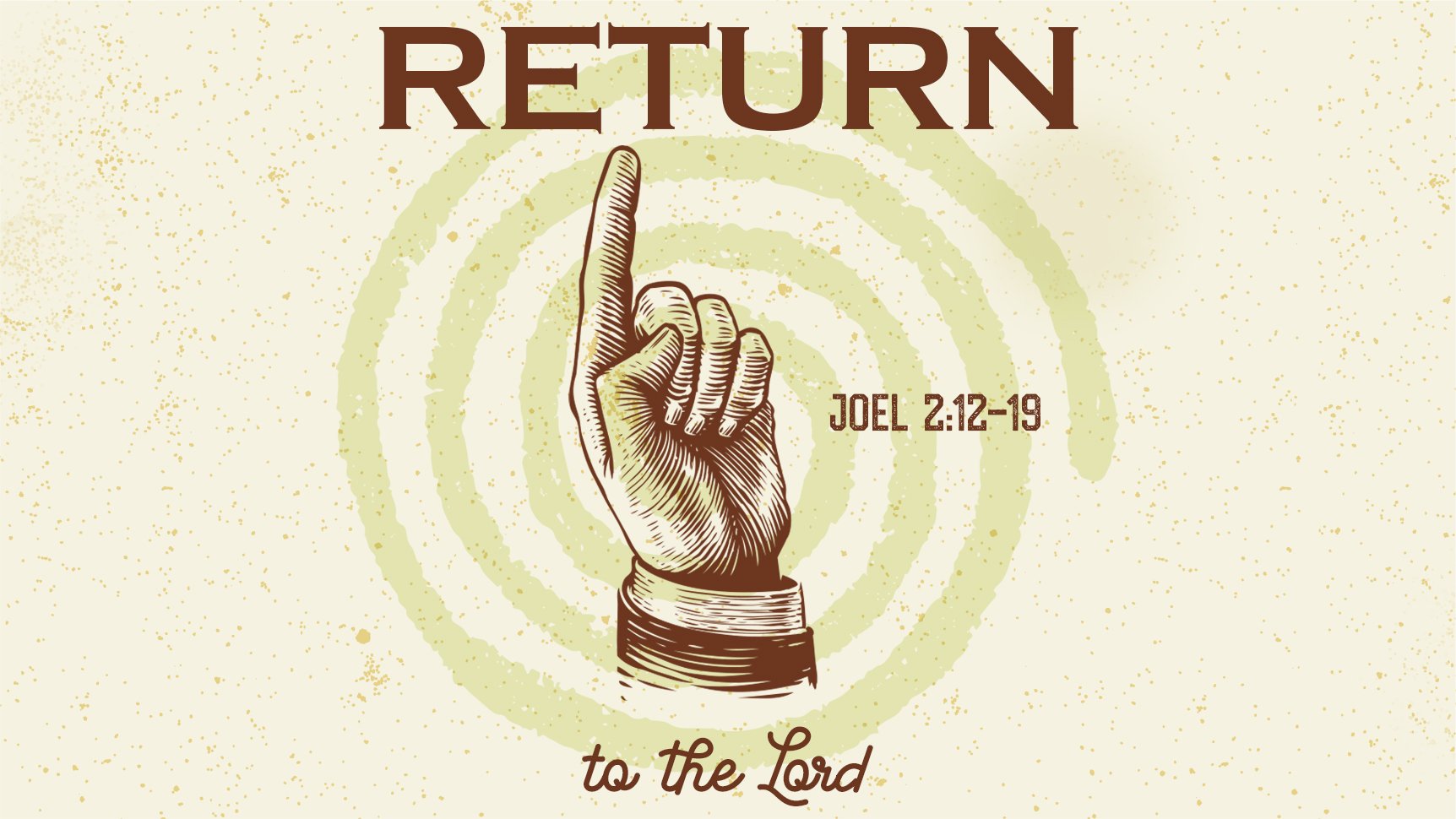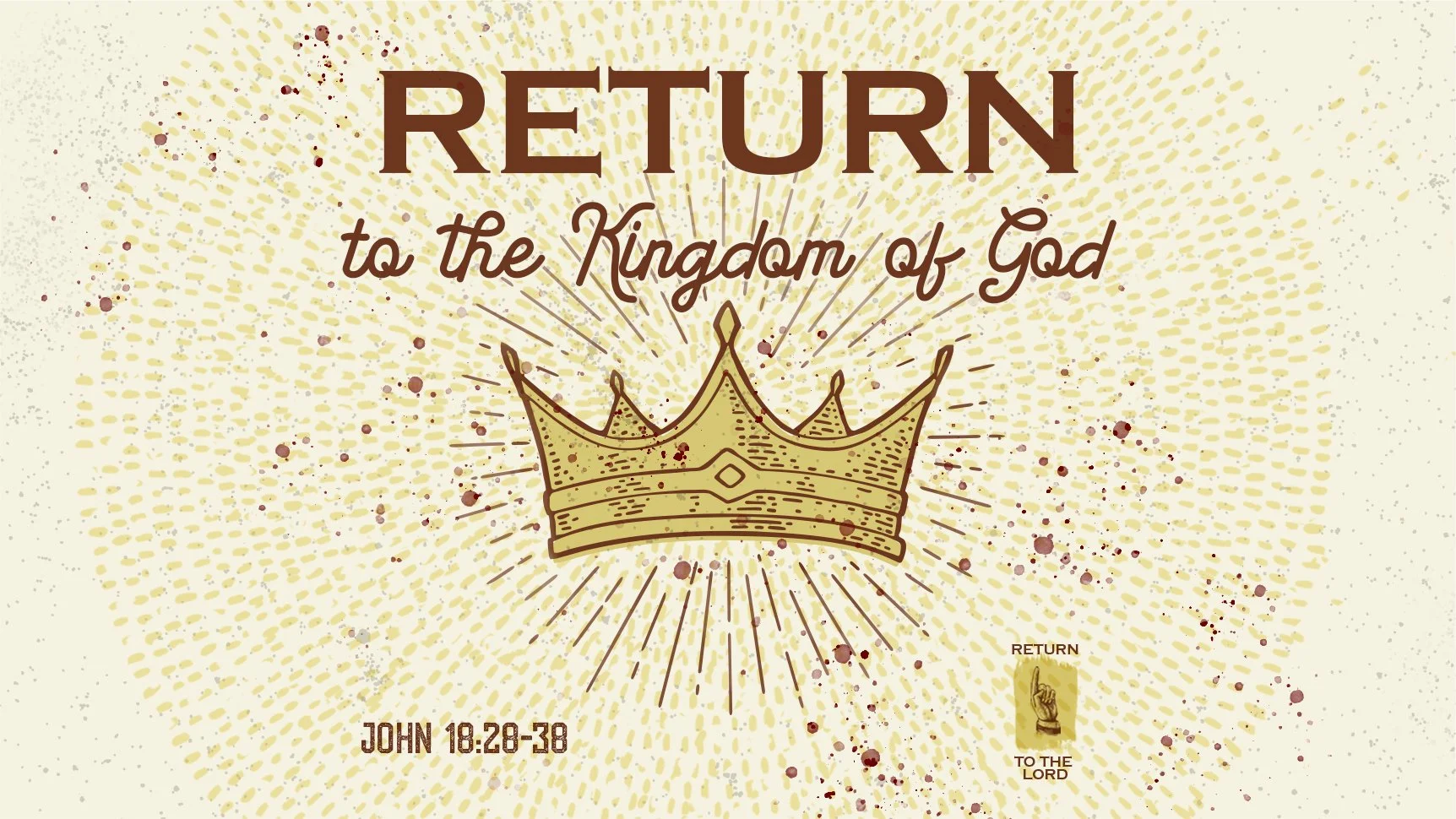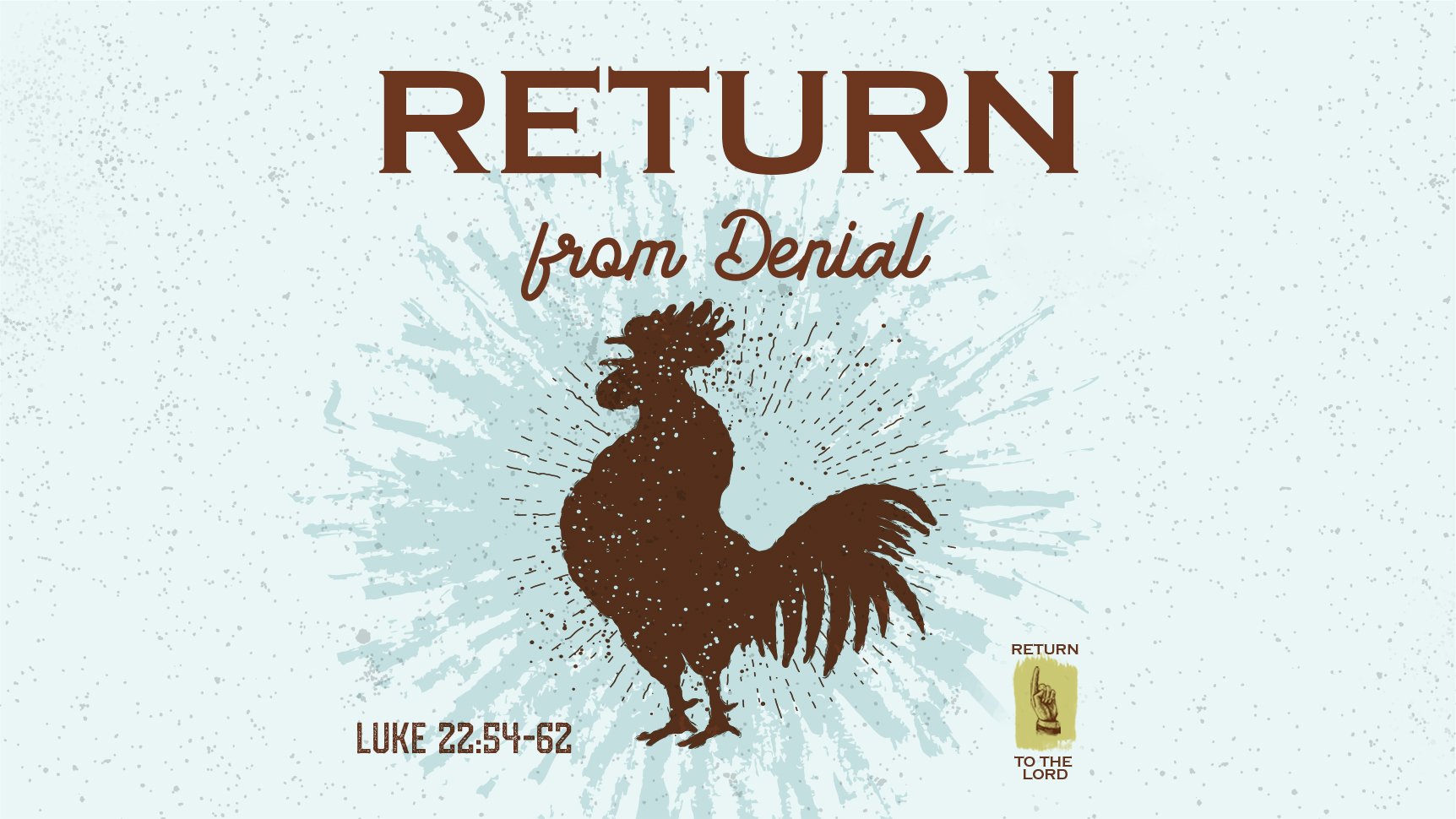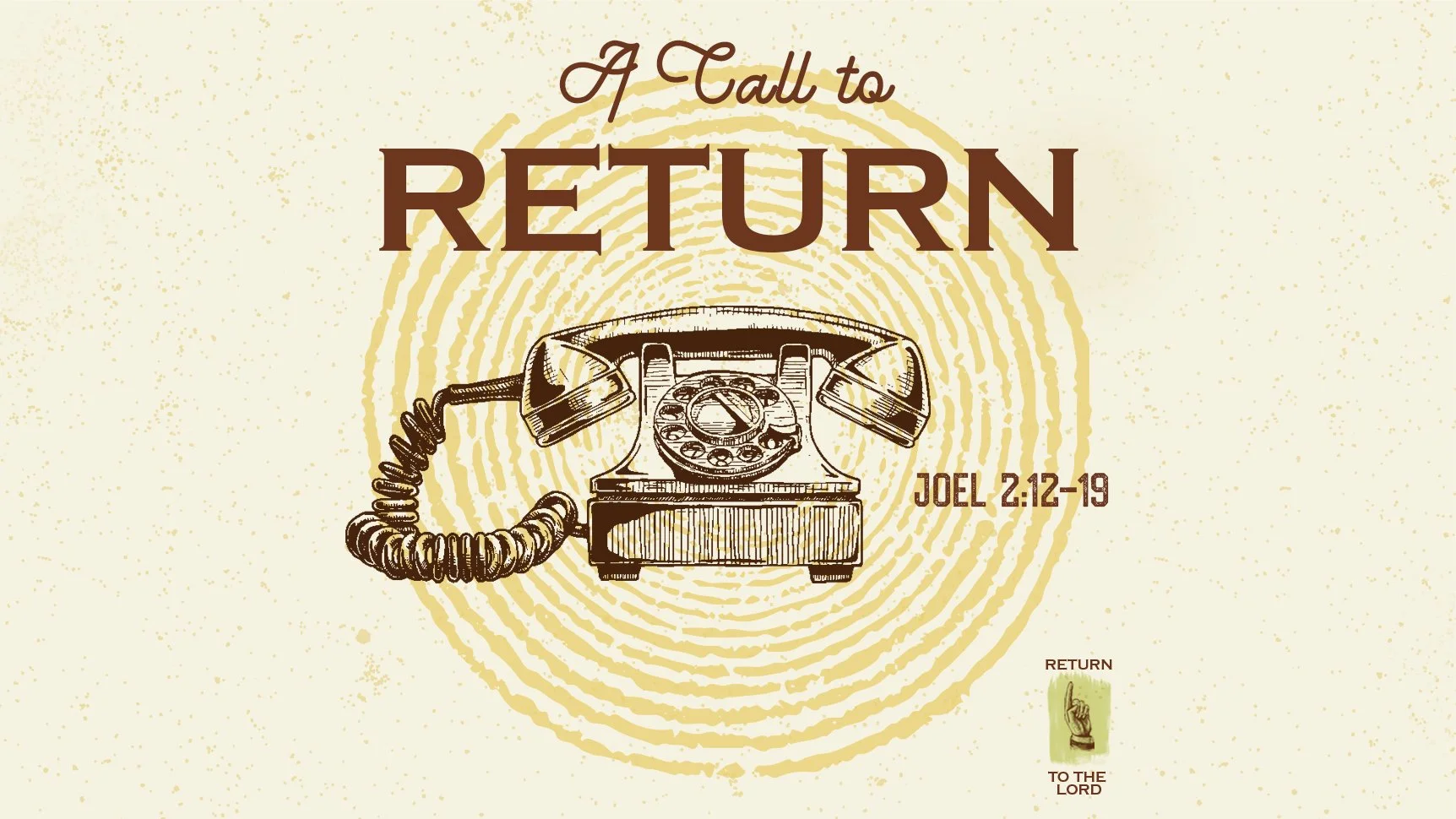Return to the Kingdom of God | Nineteenth Sunday after Pentecost | John 18:28-38
“...Return to the Lord your God,
for he is gracious and merciful,
slow to anger, and abounding in steadfast love...”
October 16 | 10:45 a.m.
Nineteenth Sunday After Pentecost
READINGS
Psalm 145:8-13
Exodus 19:1-6
Romans 14:13-17
John 18:28-38
message presented by Rev. Frank C. Ruffatto
+Points to ponder
- What does it mean to be in the ‘Kingdom of God’?
- What ‘Kingdom of God’ work do you think He is doing here at Redeemer?
- How can we encourage each other to be active in the ‘Kingdom of God’?
+Sermon Transcript
Grace, mercy, and peace be unto each of you from God our Father and our Lord and King, Jesus the Christ. Amen.
Let us pray: Merciful God, our refuge and strength, listen to the prayers of your children; You Yourself have inspired them. Grant that all our prayers might be made according to Your will, and that in faith we might endure with them in the presence of our Brother and Advocate, Jesus the Christ. Amen.
A pastor is summoned to a nursing home in rural Wisconsin to offer the Commendation of the Dying rite for an elderly member of the congregation nearing the end of life. His words bring comfort and peace to the assembled family as they gather together to share stories, comfort one another, and await their loved one’s final breath. Welcome to the Kingdom.
A young mother tentatively steps into the lobby of a small congregation in Kansas, seeking some assistance to pay a long-overdue power bill. A member of the congregation, who has volunteered to serve, sits with her, listens to her story, prays with her, and contacts the power company to pay her debt. Welcome to the Kingdom.
A homeless man is found sleeping on the sidewalk in front of a Georgia church early one Sunday morning. The elder who finds him welcomes him inside, provides him with a grocery bag full of food, and invites him to stay for worship. Welcome to the Kingdom.
In a small group during the week or on Sunday morning, you participate in the Study of God’s Word and enjoy a lively discussion about how it applies to our lives today. Welcome to the Kingdom.
A little later that morning, you line up at the front of the altar, and your King feeds you with His very own body and blood, taking away your sins, strengthening your faith, and building you up in His image. Welcome to the Kingdom.
What does it mean to be in the kingdom of God? Pilate struggles with understanding this in today’s Gospel, and it can be hard for us, who are in the kingdom of God, to grasp it as well.
Our sermon and worship series in this season of celebration and joy-filled repentance has focused on God’s calling, which we first heard in the Book of Joel: “Return to the LORD your God, for He is gracious and merciful, slow to anger, and abounding in steadfast love; and He relents over disaster.” We’ve seen our own sinfulness, but we have also heard how God continues to pursue us, encouraging us to turn from our sins and return to Him. Today, the invitation is for us to return to the kingdom of God, and our Readings lead us to consider what exactly that phrase entails.
We hear the phrase “kingdom of God” and tend to imagine it merely as a place. Maybe the kingdom of God is confined to the walls of the church, where God does some of His most visible and obvious work. Certainly, it is here, but it is not limited to this place.
Perhaps the kingdom of God follows the pastor around – sort of a mobile kingdom centered on the things that God does through some of His most devoted and humble servants. But that doesn’t seem right, either, since we have all heard stories of pastors who have fallen from grace and embarrassed themselves and scandalized their congregations with their human failures. No, it can’t be centered on the pastor.
What if the kingdom of God is purely heavenly? Maybe it’s all about the day when we will be in His presence and under His protection after we have moved on from this earthly life. But that can’t be all there is to it. Jesus Christ broke into this world; took on our flesh; died for our sins. And He did it all right here. You can even visit the place where He was born, the place where He grew up, the place where He died. It seems silly to argue that all of that happened outside the kingdom of God. After all, if it’s not where Jesus is, where could it possibly be?
The chief priests turned Jesus over to the Roman government on a seemingly inauspicious Friday morning. But their intention was clear: this man must die. Pilate tried to de-escalate the whole thing, but he was backed into a corner. So, he brought Jesus in to try and get to the bottom of it.
“Are You the King of the Jews?” Pilate asked. This was no idle question. Pilate clearly understood what the chief priests had been up to, and he had a pretty good idea of why Jesus had been turned over to him. Best to get right to the point and lay it all out on the table.
But Jesus can’t just answer a question like that. At least not if He hopes to be understood. Pilate has a particular understanding of what it means to be a king, and Jesus’ kingship doesn’t really fit into any of Pilate’s categories. He could admit that He’s a king, but Pilate wouldn’t understand that; he might think that Jesus was vying for political power, that He was a threat to the Roman Empire. But He’s not; He is King on a whole different plane.
Jesus probes, essentially asking, “Did you come up with the question all by yourself, or did somebody tell you to ask it?” Pilate is in no mood to play games with this man. “Listen, I’m not a Jew, and frankly I don’t care who the ‘King of the Jews’ might be. But You’ve rubbed somebody the wrong way, and they’ve turned You over to me. So, help me understand what this is all about.”
Jesus tries His best to explain to this man who doesn’t grasp who Jesus is and who doesn’t understand why He is standing in front of him. “It’s not a kingdom like you would imagine. If it were, My followers would be rioting in the streets and staging a coup. But they’re not. Because it’s not that kind of kingdom. It’s something else; something bigger; something much more important.”
Pilate chews on that for a moment. “So, You are a king?” Jesus’ answer is terrific: “You say that I am a king,” which is a little like Him answering, “Now you’re starting to get it.” But He goes on to explain that He is the kind of king who has come into the world to point folks to something more important than they had ever understood before. He came “to bear witness to the truth.” And if you get it, then you get it: “Everyone who is of the truth listens to My voice.”
And at that point, Pilate basically gives up. But, Beloved, you don’t because you are “of the truth.” And even when you don’t fully “get it,” you do have some understanding.
As we went through those scenarios at the beginning of the message, I saw several of you nodding. You understood that the “kingdom of God” is not about geographical boundaries, and it’s not about particular groups of people. It’s about Jesus. It’s about the work of the Holy Spirit. It’s about a loving God who invites, forgives, encourages, and builds up.
Pastor M. Craig Barnes shared this story: “I was asked to conduct the funeral for a man who had helped develop the famous Boeing 747 aircraft. After the service, I spoke with the widow and commented on how remarkable it was that her late husband had helped build that marvelous machine. She said, ‘The truth is, he worked on one little switchbox smaller than a loaf of bread. That's all he worked on for 15 years. But when that 747 lifted off the ground for the first time, it was the happiest day of his life.’
He worked on one small switchbox for more than a decade. Yet the huge plane couldn't have lifted off without this man's contribution. Often, we see only our seemingly small efforts and feel we aren't very important. But when the great Kingdom of God ‘lifts off,’ we'll be thrilled to find out that all of our efforts were essential.”
The kingdom of God exists wherever the loving activity of God is playing out. In hospital operating rooms, where miraculous healing occurs; in drug treatment programs, where addicts who have hit rock bottom finally manage to get a hold of their demons and begin to dig out of their situations; in food pantries, where people in need find love and care and provision; around flagpoles, where young people gather to pray before school; in a voters meeting, where the whole congregation comes together and agrees to engage in an intentional Gospel-sharing endeavor aimed at and for the members of their community, that they would get to share the love of God with the young and old and everyone in-between.
“Jerome of Stridon, known as St. Jerome, was a very learned and industrious man who, around A.D. 400, spent about 35 years at Bethlehem. Among other labors while he was there, he translated the Bible into Latin. His translation came to be known as the Vulgate and was the standard version for many centuries. But when he heard of a man who wanted to make the arduous pilgrimage to Bethlehem, perhaps to die there, he sent him a message advising him not to do so. ‘For,’ he said, ‘heaven is as near to you in Britain as it is here, for the kingdom of God is within you.’”
God calls us to be part of His reign and rule right here in Charleston, WV. To witness the work that He is doing in our midst and to participate in it. To play a role as hands and feet of God to share His love with others, both inside the church and outside of it. To play a role, dare I say it, as Help, Hope, and Home in the Body of Christ. That’s the kingdom that God has called you to. Rejoice, dear brothers and sisters, that you are subject to the One who created you, the One who redeemed you, the One who sanctifies you. For He is the best King in all of creation. Amen.
“May the God of hope fill you with all joy and peace in believing, so that by the power of the Holy Spirit you may abound in hope.”
ABOUT THE SERIES
In the Book of Joel, the prophet paints a vivid picture of the coming judgment of God, the Day of the Lord. The imagery is bold and terrifying. Joel’s prophecy has teeth even today as wars rage, natural disasters threaten and destroy, and our culture seems to be unraveling.
But right in the middle of this frightening portent, we find a tender invitation from the Lord: “Return to the Lord your God, for He is gracious and merciful, slow to anger, and abounding in steadfast love; and He relents over disaster” (Joel 2:13). God’s invitation and promise finds its fullness in Jesus Christ, who personifies and accomplishes all that God declares.
During this series, we will consider the theme “Return to the Lord” and examine how the call to return played out in practical ways for the people who walked alongside Christ as He demonstrated and carried out God’s grace and mercy on our behalf, taking God’s wrath upon Himself, setting the stage for God to “turn and relent, and leave a blessing behind Him” (Joel 2:14).
Join us for the Return to the Lord series at Redeemer.











